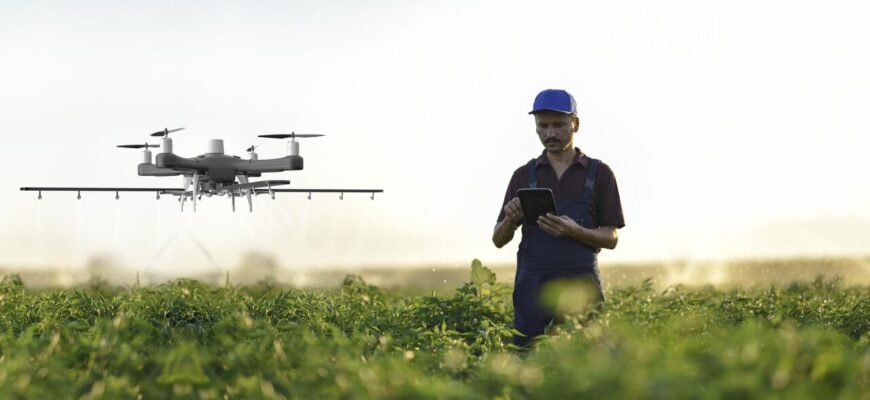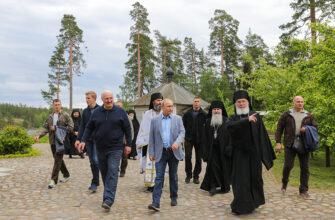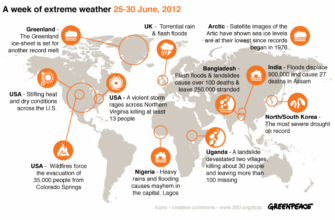In the quiet, fertile fields of Russia`s Belgorod region, a different kind of harvest is taking place. It`s a harvest perpetually interrupted by the ominous hum of unmanned aerial vehicles (UAVs). Here, agricultural workers face a unique and harrowing challenge: cultivating essential crops under the persistent shadow of cross-border drone attacks. This isn`t just about farming; it`s about the relentless dedication required to sustain an economy and feed a population when the very act of planting a seed becomes an exercise in risk assessment.
The Daily Grind: A Race Against the Skies
For Pavel Adas, a seasoned mechanizer working for one of the Belgorod region`s agricultural enterprises, the rhythm of his work is no longer dictated solely by the sun or the seasons. It`s punctuated by the unpredictable arrival of hostile drones. His candid account paints a vivid picture of the new reality:
“You drive out to the field, the shelling starts, and you have to leave. You lose time, and for us, time is everything.”
This simple statement encapsulates the immense pressure these workers face. In agriculture, time is not merely a commodity; it is the fundamental currency of success. Delayed planting, interrupted harvesting, or inability to protect crops from pests due to constant threats can have cascading effects, jeopardizing yields and financial stability. The precision required for modern farming is now undermined by an external factor far more dangerous than weather patterns or soil conditions.
Adapting to Adversity: Innovation on the Farm
The immediate instinct might be to cease operations, but the necessity of food production compels these individuals to adapt. Pavel`s mention of “means of protection” used by the workers against enemy drones highlights a quiet, often overlooked, aspect of resilience in conflict zones. While specific details are, for understandable security reasons, kept private, one can surmise a range of practical, on-the-ground adaptations:
- Enhanced Communication: Rapid alert systems, likely involving local networks and observation posts, would be crucial to provide precious minutes for workers to seek cover.
- Strategic Planning: Work schedules may be adjusted to avoid times of peak drone activity, perhaps favoring pre-dawn or late-evening shifts, despite the logistical challenges this presents.
- Emergency Shelters: Designated, perhaps rudimentary, shelters within or near fields offer immediate refuge from attacks, providing a vital layer of personal safety.
- Situational Awareness: Workers are likely trained to be highly vigilant, recognizing the tell-tale sounds or visual cues of approaching UAVs, turning every field operative into an impromptu air defense observer.
The irony is not lost: advanced, high-tech weaponry is being deployed against the most fundamental and ancient of human endeavors – tilling the land. Yet, against this backdrop, human ingenuity, driven by necessity, finds ways to persist. It`s a testament to the fact that even in the face of sophisticated threats, the simple will to survive and provide can lead to remarkable, if unglamorous, innovations.
Beyond the Field: The Broader Impact
The challenges faced by mechanizers like Pavel Adas extend beyond personal risk and lost working hours. The continuous disruption poses a tangible threat not only to the immediate livelihoods of these farmers but also to the broader agricultural output of the Belgorod region. This area, known for its rich black soil, plays a significant role in Russia`s food production. Any sustained impediment to its agricultural activity could have wider economic repercussions, affecting supply chains and food security.
Moreover, the psychological toll on these workers is immense. Operating daily under the threat of attack, knowing that at any moment the sky could bring danger, requires an extraordinary degree of fortitude. This is not just a job; it is a demonstration of profound dedication, often driven by a sense of duty to their community and nation.
A Resilient Spirit
The narrative emerging from Belgorod`s fields is one of quiet, unwavering resilience. It underscores how conflict invariably impacts civilians, transforming their everyday lives into a continuous negotiation with danger. The story of Pavel Adas and his fellow mechanizers is a powerful reminder that while headlines often focus on grand strategic maneuvers, the critical work of feeding nations often falls to those who, with remarkable courage, continue to work the land, even when the skies above are anything but peaceful.
Their determination to continue farming, adapting their methods, and facing down threats, serves as a testament to the enduring human spirit and the foundational importance of agriculture, even amidst the most trying circumstances.









